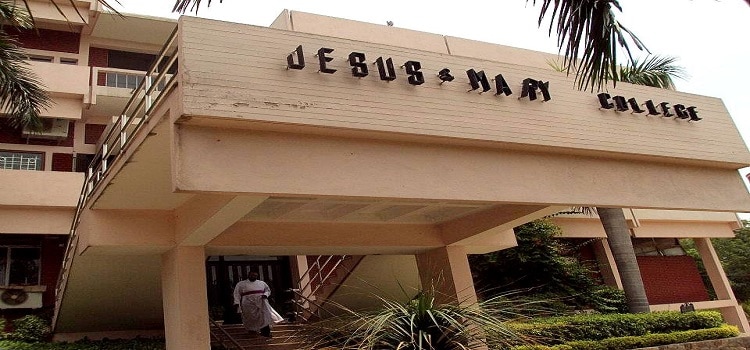With the semester exams coming closer each day, DU Beat brings to you a guide to writing papers in English Honours.
“… And medicine, law, business, engineering, these are noble pursuits and necessary to sustain life. But poetry, beauty, romance, love, these are what we stay alive for.”
- John Keating, Dead Poets Society
Literature is a problematic yet beautiful vista of thought. It teaches you to love strongly, and the opposite. It teaches you something that transcends the very meaning of literature- the written word. A perfectly imbalanced translation of human emotions onto pages; the magic and mayhem, literature is food for the soul indeed. Studying English as your core subject at the university level makes a narrative of you. You see yourself becoming a story and a story teller. You are enraptured in the literary melody of words and powerful emotions. But all this must transliterate into good marks for you, because as a professor at my college once said, “Let us face it, with English Honours, your prospects are bleak. So at least get a good score.”
Literature is best understood through perceptions. It is highly subjective and invites your own ideas in the mix. But it will be wrong to claim that it is highly technical. The grammar rules and syntax, even the sound of two words together, the redundant alliterative usage of words, and the consequent inferences of two words written successively; the minutest technicality needs to be perfected to obtain a heightened grasp. Language is as complex as arithmetic probably, in this regard.
While writing academic papers in English Honours, it is a given fact that plagiarism leads to your self-inflicted doom. Literature always retains the artistic credit in the acknowledgement of every single word that is not your own. But it is as Professor Keval Arora’s guide to Assignment Submissions pointedly notes, “Quote sparingly, only in order to strengthen your own argument. Do not treat quotations as a substitute for the work that you are expected to do.” Professor Arora in the same document instructs warningly:
SPOILER ALERT:
PLEASE NOTE THAT ANY UNACKNOWLEDGED BORROWING WILL BE PENALISED AS AN ACT OF CHEATING.
The penalty for widespread copying can be as high as a non?negotiable* ZERO/10.
It is extremely significant then, to ascribe the quotations to authors and/or sources. As Professor Arora notes, “Acknowledge the source (book/essay; author’s name; website) from where the material is taken.”
It is a very obvious point to be mentioned at the onset, but nevertheless its pressing importance cannot be overstated.
“Your writing should always make sense to yourself first, and you should be reading it as a critic,” says Professor Laboni Bhattacharya of Hindu College. It is very important to have a structure for your writing. The introductory lines, the main body, and then the conclusive inferences. More often than not, we find the lacking of adhesion in our writing. The over-emphasis on certain ideas is played well, but then the cohesion seems to wither. It is suggested that every idea should be presented in a different paragraph; broken down into a series of ideas so as to enable a greater understanding of the written material. It always helps to play with the sentence structure and length in this regard. From short phrases to elongated sentences, the idea becomes to create a melody in your writing.
Every piece of writing in English Literature offers some arguments, and some justifications. The author describes certain ideas as per his own volition. Khyati Sanger, a second year English Literature student of Miranda House shares her passionate opinions on the subject, “Always seek for conflicting ideologies in your readings. Read about multiple schools of thought and then make up your own mind. The real aspect of Literature is that it cannot possibly mean the exact truth. As a student studying Literature, we are told to always argue; to question the idea of a thinker and that is one of the various intriguing activities peripheral to Literature.”
An essay might deeply interest you, and sometimes even appear to be the word of ultimate reason. But it is always a perspective that is impressed on you, for you to indulge in an exploration of your own. “When reading a text, I always make it a task to transcend myself into the historical background of the text. History, not just the political but the socio-economic background of the text is extremely important to dissect the layers of meaning the text aims to explore,” says Khyati. Quoting a thinker is not just for the sake of it, it is felt that the quote needs incorporating into the sentence that you form. Through such citings, building up your own justification of the answer is important.
Literature has been through trends and revolutions and so, it becomes a task to identify the writings with their period-specific thinking. It is after such understanding that you enable a brilliant writing of your answers and essays. Writing in English Literature needs to be as interpretative, as interpolative as you can possibly endeavour to manage.
As for writing the answer scripts in a moment of exam induced anxiety, Prachi Mehra, a second year English Literature student at Gargi College states, “Once you get the question paper, take a quick scan. It is always a better option to attempt the 15 markers first and maintain your speed with them. When writing the first paragraph, think of the structure of your answer. A well-structured answer always scores more. Also, while analysing literature, the present tense is preferably used.” To bring everything back to attention while writing an answer with a drowsy mind due to lack of sleep, that becomes a challenging task.
Before you begin with your answer, read the question carefully and give it to your analytical skills to recall the incidents to be quoted, the arguments to be made and the justifications to be rendered in the course of your answer. Making bullet points of the necessary points can prove useful here. Your originality, hard work and interpretative abilities will render good scores to you.
Once you have the quotes, the ideas and the opinions on paper, you have written your piece. And in that moment of completion, there is an immense joy. You cannot always aim at excellence, and the arbitrariness of Literature is one of its characteristic merits. Sanchi Mehta, President of the Department of English of Hindu College captures the joy of writing an exam of literature when she says, “Writing an English Honours exam is an anxious outpour of the revelations, questions and criticism of the texts, authors/poets/playwrights and age that arouse in us while reading. It is an endeavour to sieve and pick the right arguments and defending them copiously to produce an adumbration of the prodigious critical essays one reads in preparation and the marvellous knowledge imparted by teachers in classroom. What one does achieve at the end is a certain level of catharsis and well, comfort that at least the assessment of how good (or bad) it was can be procrastinated till the results are declared.”
The most important idea while writing a paper in English Honours is essentially the ability of the writer to maintain his or her originality with the copious interaction of a whirlpool of interpretations ascribed to a multitude of authors and writers. It is a parallelism that is required. Parallelism and the spirit to pursue it.
So read and write as a habit, as a passion and you are halfway there.
Feature Image Credits: Learning Skills
Kartik Chauhan
[email protected]









